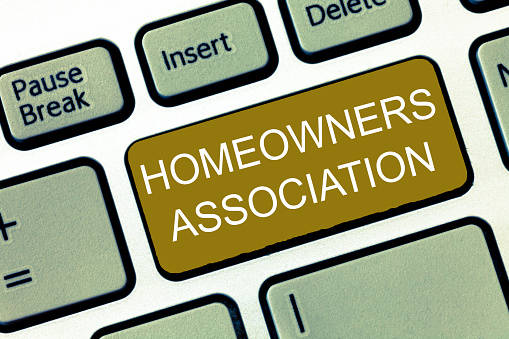HOA board members should take care in communications
Every day we communicate, be it our telephone conversations, our emails or our letters. As community managers and homeowners association board members, we communicate when we send governing documents, budgets and financial reports to our residents. Words become important and what we say, how we say it, when we say it and how we distribute what we say can mean the difference between a successful or non-successful defense of our actions.
Nevada Revised Statute 116 and NAC 116 have many guidelines pertaining to communication that is considered private or confidential and what is considered public information. This article explores communication and NRS 116 and NAC 116 laws and regulations.
NRS 116A.640 (1) states that a community manager shall not disclose confidential information relating to a client that includes the business affairs and financial records of the client unless the client agrees to the disclosure in writing, with the exception of being required to disclose such information by law or court order. The board of directors have a similar section in NAC 116.405 (4) stating that unless required by law or a court order, the board will not disclosed confidential information relating to a homeowner, a board member, an officer, an employee or authorized agent of the association unless consent has been given by that respective individual.
We hear this complaint every day. What is the association doing about the violations of my next door neighbor? Our response: “That information is considered confidential.”
NRS 116.31175, which pertains to the maintenance and availability of records in section 4b, states that the records relating to another homeowner including architectural plans or specifications submitted by the homeowner to the association during the approval process are considered confidential. This section of the law also includes the personnel records of the association’s employees with the exception of the records relating to the number of hours worked and compensation. This section of the law does not apply to the employees of the community management company. Under section 4c any document including minutes, reserve study and budget that is in the process of being developed for the final consideration by the board and has not been placed on an agenda for final approval are also considered confidential and not available to the homeowners.
Often, a homeowner who has complained about another homeowner who subsequently has a hearing violation will want to know the action the board took in executive session. NRS 116.31086 pertains to communications related to an executive session agenda, which are considered confidential, such as attorney communications concerning litigation, or the community manager’s or employee’s character, alleged misconduct, physical or mental health. In addition, the violations and delinquencies of another homeowner are considered confidential.
I just recently received an email to my column pertaining to the election process and the statements made by two candidates. The reader considered the statements to be libelous and asked my opinion whether a new election should be held since the association’s newsletter published the statements. What is the association’s role?
NRS 116.31034 (9) states that the association is to distribute the candidates’ disclosures on behalf of the candidates to each homeowner with the ballot with one exception. The association is not obligated to distribute any disclosures if the disclosure contains information that is believed to be defamatory, libelous or profane.
The law also allows a candidate to submit a one-page informational statement (NRS 116.31034 17) that the association is to send to its membership with the exception that the statement must not contain any defamatory, libelous or profane information. Sometimes this poses a “debate” between the community manager and the board, especially for those board members running to be re-elected. Sometimes, statements from candidates are made claiming mismanagement of the association or mismanagement of association funds or incompetence of the current board members. Do these statements rise to being libelous or just being the opinion of another homeowner? What about personal statements that candidate “x” is a liar and cannot be trusted? At what point does the association or the community manager edit the candidate statement or is the statement to be returned to the candidate for revision? The law is silent as to the specific action the association should take. The appropriate action is for the association to obtain a written opinion from its legal counsel and to follow that advice.
Often, associations communicate through their newsletters, magazines, websites and bulletin boards. These forms of communication represent the association’s official publications. There are occasions when the association uses their official publication to persuade homeowners to support a project, such as the conversion of greenbelt to drought-tolerant landscape or to prepare homeowners for a major increase in their assessments or for the need of a special assessment or to amend their governing documents.
NRS 116.31035 allows for “equal space” from those homeowners who are opposed. The law states upon request and under the same terms and conditions that provide equal space of the opposing views and opinions of a unit owner of the association. This equal opportunity also applies to closed-circuit television if the association has such a system used for communication to its membership. Under this statute, the association, board members, employees, agents (community managers) are immune from criminal or civil liability for any act or omission that could arise out of the publication or disclosure of any information related to any person and which occurs in the course of carrying out any duties required with this statute.
I would be remiss if I did not include the topic of social media. It is a no-win scenario for the board or individual board members to participate in the discussions. Often, I hear from individual board members that my comments were my personal opinions and do not represent the association. As far as the general public is concerned, your statements reflect the board of directors. If the level of discussion in social media truly reaches a stage of misinformation then the association should rely upon its official publications to address those issues.
Finally, be careful with your email communications. Remember that confidential communication is not intended to be disclosed to a third party. Disclosure can waive the privilege of confidentiality.
Barbara Holland is a certified property manager, broker and supervisory certified association manager. Questions may be sent to holland744o@gmail.com.

















